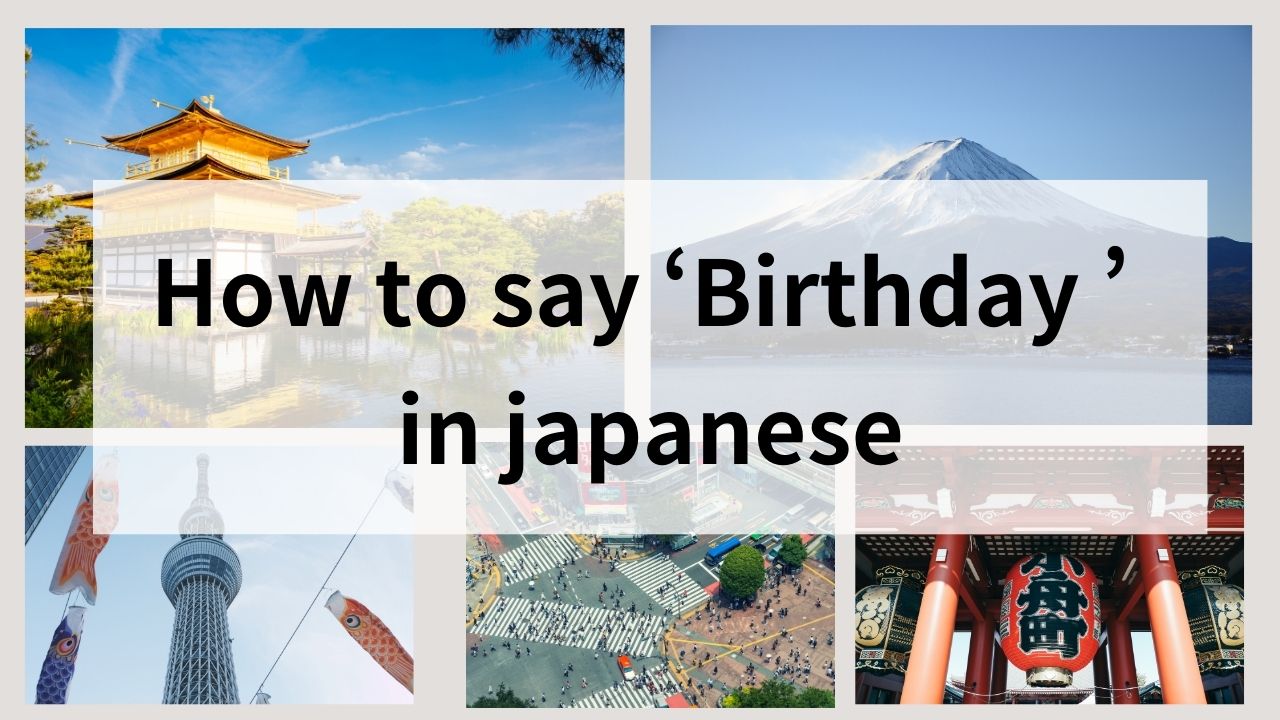Are you curious about how to say “birthday” in Japanese? Birthdays are celebrated differently around the world, and understanding the Japanese expression can enhance your cultural knowledge. This guide will explore the Japanese word for “birthday,” its cultural significance, and practical applications.
How Do You Say “Birthday” in Japanese?
The Japanese word for “birthday” is 誕生日 (tanjoubi). This term is commonly used in both casual and formal contexts. Birthdays in Japan are often celebrated with family and friends, and the concept carries a blend of traditional and modern influences.
The Japanese Word for Birthday: Tanjoubi (誕生日)
“Tanjoubi” is a term that encompasses the celebration of one’s birth. It appears in various phrases and contexts, such as:
- 誕生日おめでとう (Tanjoubi omedetou): “Happy birthday!”
- 誕生日ケーキ (Tanjoubi keeki): “Birthday cake.”
- 誕生日パーティー (Tanjoubi paatii): “Birthday party.”
Kanji for Birthday: 誕生日
The kanji for “birthday,” 誕生日, consists of two parts: 誕 (tan) meaning “birth” and 生 (jou) meaning “life.” This visually striking combination reflects the significance of celebrating life and the passage of time. The pronunciation for the kanji is たんじょうび (Tanjoubi).
Examples of words containing the kanji 誕 and 生 include:
- 誕生 (Tanjou): “Birth,” the act of being born.
- 生まれる (Umare ru): “To be born,” a verb form related to birth.
- 生年月日 (Seinengappi): “Date of birth,” used in formal documentation.
This kanji is commonly used in various contexts related to life events, highlighting the importance of birthdays in Japanese culture.
Does “Birthday” Work in Japanese?
The English word “birthday” is generally understood in Japan, especially among younger generations or those familiar with Western culture. However, its recognition might be less universal among older individuals or in more traditional contexts. A 5-point scale rates its comprehension as:
- Rating: 4 – Generally understood (60-80% of people)
If clarity is crucial, using the Japanese term たんじょうび (Tanjoubi) is recommended. While “birthday” may be understood in certain contexts, “tanjoubi” ensures effective communication.
The Cultural Significance of Birthdays in Japan
Birthdays hold a unique place in Japanese culture, with various traditions and customs surrounding the celebration. While some aspects are influenced by Western practices, many Japanese people also observe traditional rituals that reflect cultural values.
Traditional Birthday Celebrations
In Japan, the 60th birthday, known as 還暦 (kanreki), is particularly significant. It marks the completion of a full cycle of life and is celebrated with great reverence. Family and friends often gather to honor the person reaching this milestone with special gifts and ceremonies.








